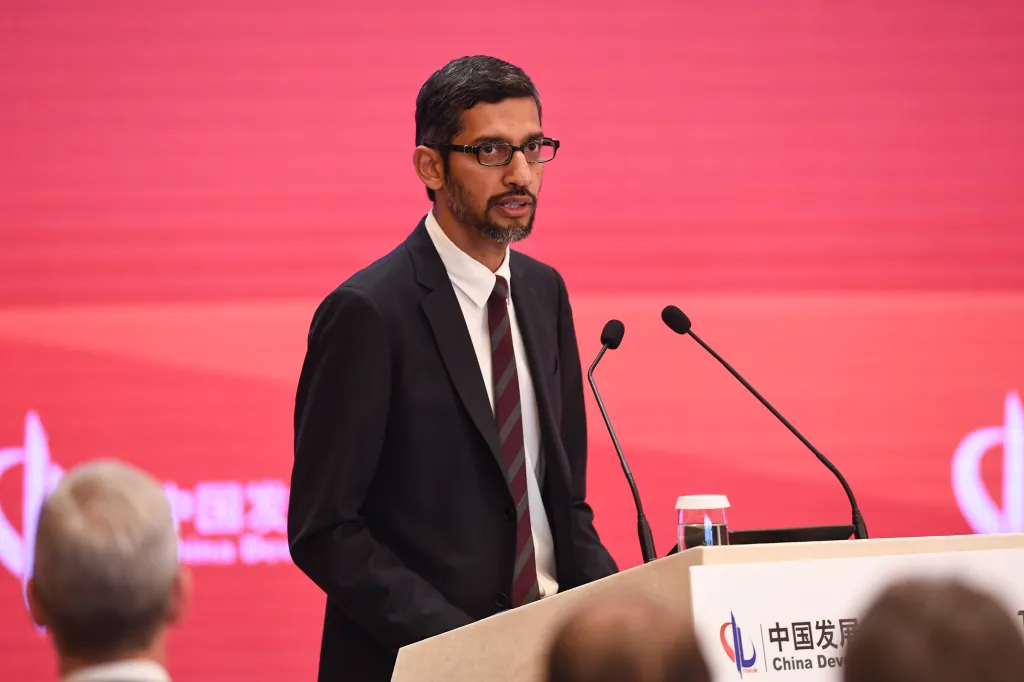Google found itself in a pivotal legal battle in a San Francisco court hearing, confronting allegations of anticompetitive practices in the app market for smartphones running its Android software. This legal challenge arose following a previous ruling by a nine-person jury, which found Google guilty of monopolizing its Play Store for Android apps. The case was initiated by Epic Games, the developer behind the popular game “Fortnite.”
Presided over by U.S. District Judge James Donato, the hearing represented the next phase in addressing the antitrust allegations against Google. Donato underscored the finality of the jury’s verdict and instructed lawyers not to revisit it. He framed the case as a broader competition issue rather than a specific remedy sought by Epic, signaling his intent to assess the broader implications of Google’s practices.
Epic Games seized upon the jury’s decision to advocate for significant changes in how Google manages its app distribution on the Android platform. Central to Epic’s proposals is the demand that Google make all Android apps available to competing app stores, thereby breaking its stranglehold on app distribution. Additionally, Epic advocated for the inclusion of rival app stores within Google’s Play Store, allowing users to access alternative app marketplaces directly.
The proposed changes aim to disrupt Google’s dominance in the Android app ecosystem, which Epic argues stifles competition and innovation. By opening up the app distribution landscape, Epic contends that smaller and newer competitors would have a fairer chance of reaching users, thereby fostering a more competitive environment.
Google vehemently opposed Epic’s proposed remedies, arguing that they would undermine the integrity of its platform and fail to address legitimate concerns about security and user experience. Google maintains that its curated Play Store provides users with a safe and reliable environment while enabling developers to reach a vast audience of Android users.
The outcome of the court hearing carries significant implications for the future of app distribution on the Android platform and the broader digital ecosystem. Depending on Donato’s ruling, Google may be compelled to make substantial changes to its app distribution policies, potentially reshaping the competitive landscape and opening up opportunities for new entrants in the market.
Regardless of the verdict, the legal battle underscores growing scrutiny of tech giants’ market dominance and their impact on competition and innovation. As regulators and lawmakers continue to scrutinize the practices of companies like Google, the outcome of this case could set a precedent for future antitrust enforcement in the tech industry.
In a pivotal legal battle unfolding in a San Francisco courtroom, Google found itself grappling with allegations of anticompetitive behavior within the app market tailored for smartphones running its Android software. This legal skirmish emerged as a direct consequence of a prior ruling by a nine-person jury, which unequivocally found Google guilty of monopolizing its Play Store for Android applications. The case, instigated by Epic Games, the developer behind the widely popular gaming phenomenon “Fortnite,” thrust the tech giant into the spotlight of antitrust scrutiny.
Presided over by U.S. District Judge James Donato, the court hearing marked a crucial juncture in addressing the antitrust allegations leveled against Google. Donato, in setting the tone for the proceedings, emphasized the irrevocable nature of the jury’s verdict and admonished legal counsels against revisiting its particulars. Rather than focusing solely on the specifics of Epic’s proposed remedies, Donato framed the case as an overarching competition issue, signaling his intent to delve into the broader implications of Google’s market practices.
For Epic Games, the jury’s decision served as a catalyst to advocate for sweeping changes in how Google administers app distribution within the Android ecosystem. At the core of Epic’s proposals lay a bold assertion: Google must open its tightly controlled app marketplace to competing app stores, thereby dismantling its monopolistic grip on app distribution. Additionally, Epic pressed for the integration of rival app stores directly within Google’s Play Store interface, empowering users to access alternative app marketplaces with ease.
These proposed reforms, according to Epic, represent a pivotal step towards fostering a more competitive and inclusive app ecosystem on the Android platform. By dismantling Google’s hegemony, Epic contends that smaller app developers and emerging competitors would stand a better chance of gaining visibility and traction among users. In essence, Epic’s vision seeks to level the playing field, promoting innovation and diversity in app development while curbing Google’s dominance.
In stark opposition, Google vehemently rebuffed Epic’s proposed remedies, asserting that they would undermine the foundational principles of its app distribution model. Google contends that its meticulously curated Play Store serves as a bastion of security and quality assurance, safeguarding users from malicious or substandard applications. Moreover, the tech giant argues that opening up its platform to competing app stores could introduce security vulnerabilities and compromise the user experience, potentially exposing millions of Android users to risks.
The outcome of this courtroom showdown holds profound implications for the future trajectory of app distribution within the Android ecosystem and, by extension, the broader digital landscape. Depending on Donato’s ruling, Google may find itself compelled to enact sweeping changes to its app distribution policies, thereby reshaping the competitive dynamics of the market and paving the way for increased competition and innovation.
If you like the article please follow on THE UBJ.
